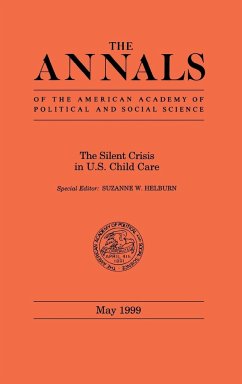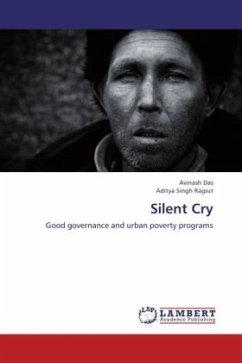In the 20th century we have witnessed the massive movement of women and young mothers into paid employment in the U.S. and other industrialized countries. By 1995 64% of married mothers with a preschool-aged child were in the labor force compared to 35% only 25 years earlier. Rising divorce rates and an increase in the percentage of female-headed households make more families dependent on the mother's earnings. These structural shifts, along with women's growing aspirations for careers and more independence, have changed social norms. Families increasingly depend on formally provided child care. The child care crisis is easily overlooked. It is a silent, voiceless crisis. Three-, four-, and five-year-old children cannot speak for themselves. Low- and middle-income children and mothers, those most directly affected, have little economic or political power. What choices must we as a society make to aid our nation in raising its children? The Silent Crisis in U.S. Child Care, a special issue of THE ANNALS, addresses the important debates and questions regarding child care: · Regulating Child Care Quality · Making Child Care Affordable in the United States · Defining and Assessing Early Childhood Program Quality · Who Should Pay for Child Care The discussion of child care not only affects our society as a whole, but also influences the decisions of policymakers and politicians. The articles in this special issue are valuable to scholars, researchers, policymakers and those working in and with the child care system who seek to find answers and solutions to this timely and important problem.
Bitte wählen Sie Ihr Anliegen aus.
Rechnungen
Retourenschein anfordern
Bestellstatus
Storno








